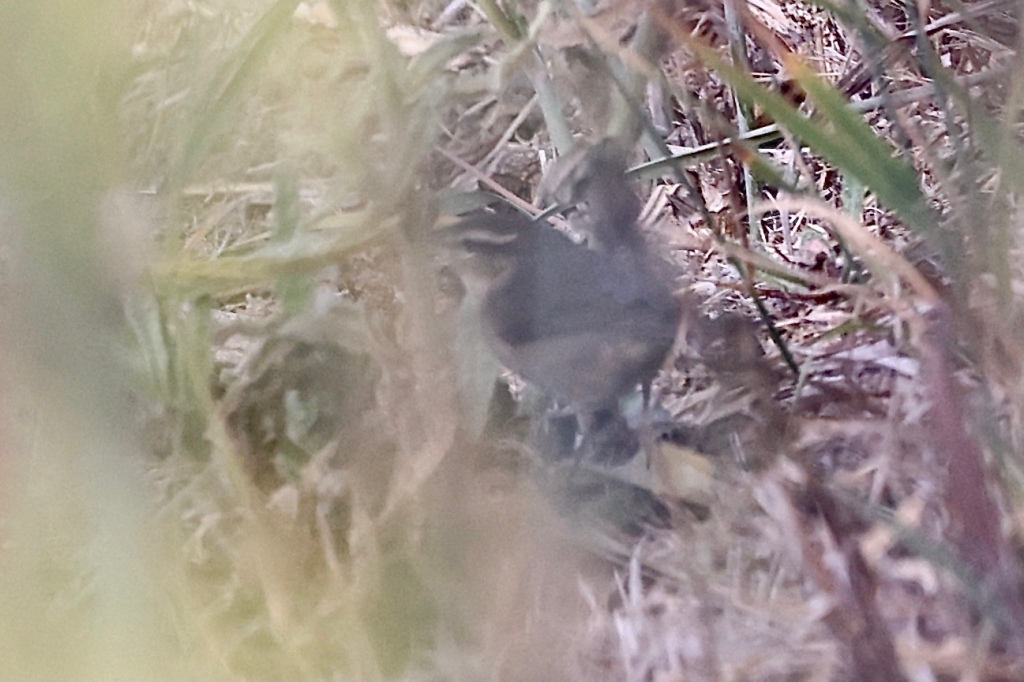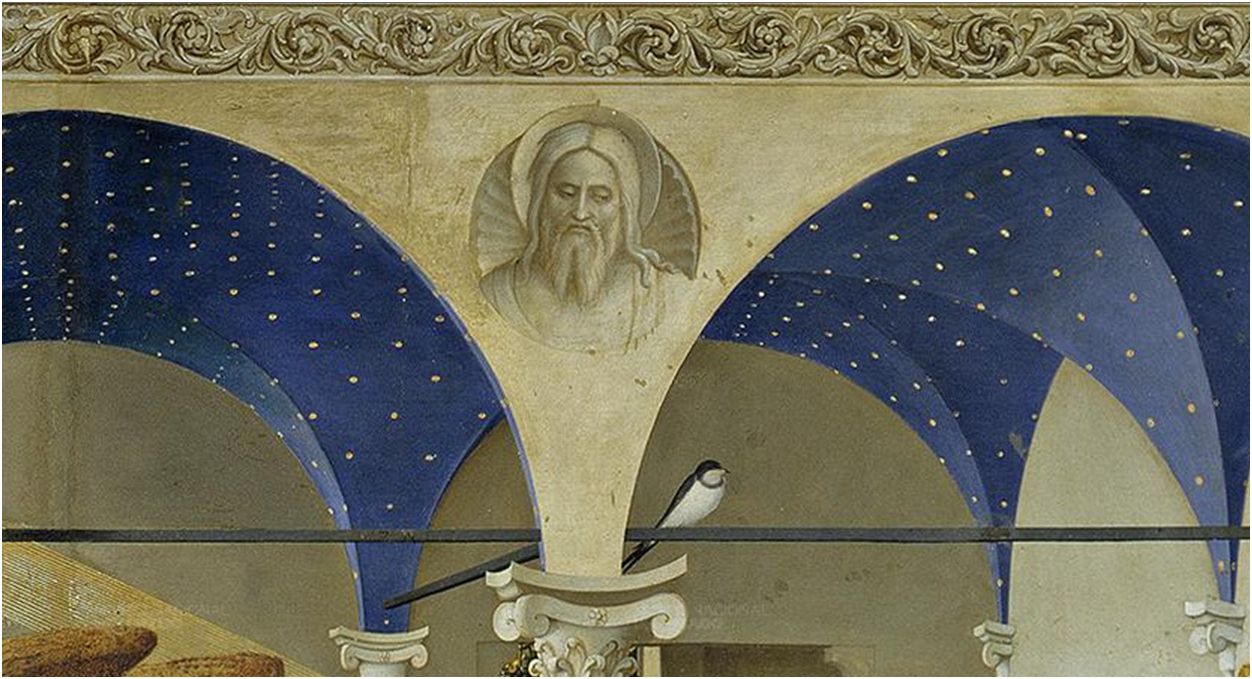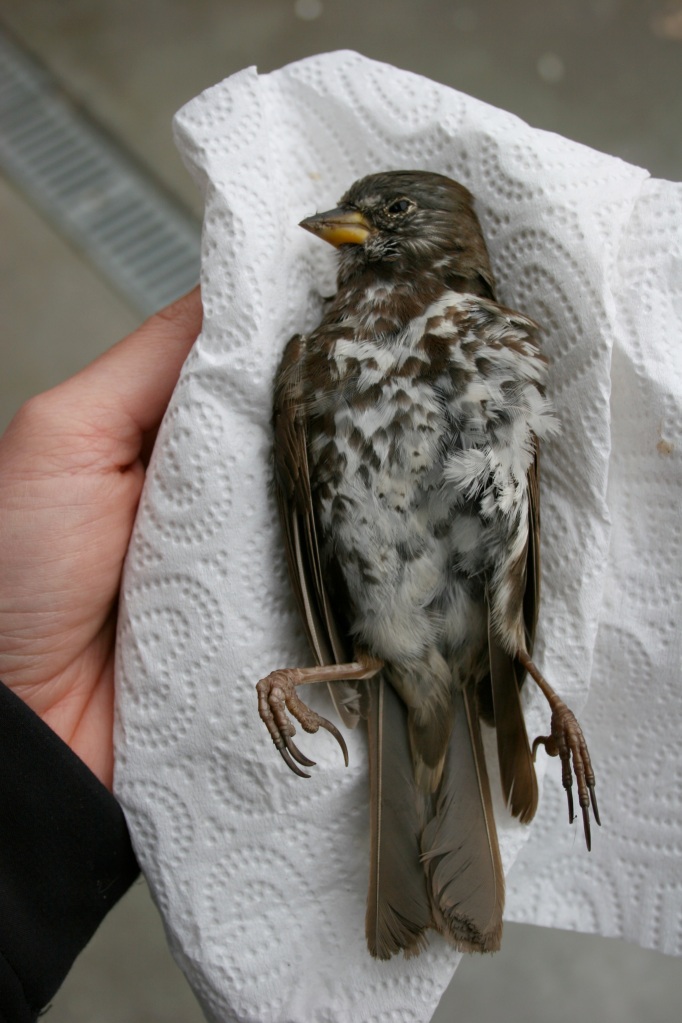Tags
art, bird watching, birds, birdwatching, death, Home, memoir, migration, nature, painting, philosophy, Photography, poetry, Summer Lee, Summer Mei Ling Lee, words, writing
(With a few words in a note to me, she tore open the blank space here, and asked me to write again. Her gesture brought tears, in both senses of the word, and so it starts with tears — because it involves breaking the icy river, the cowardly reluctance to thaw it, to think it isn’t always flowing underneath.)

Beauty, Nathan reminds me.
What of my small experiences wants words to land them here. What birds would touch down from untouchable sky in order for me to see them, count them, photograph them, devote myself to them.
Because now these birds seem wild and unbelonging like the work that sits months waiting for me in my studio.
Last week we made a strange reunion of local birders on the back porch of a stranger’s house, to peer over a fence into the neighbor’s yard to glimpse a young Summer Tanager eating desperately at the feeder. He was undoubtedly wayward and far from home territory because of the onslaught of coastal storms. We were welcomed into that space and to each other, with only a quick mention of the mass shooting that had happened the day before shattering our small town. Then, the bird arrived, and as Eva describes, we wandered into the center of the circle of wonder. Summer Tanager was the greeting.
How often I delude myself to be disconnected from it all. And as Eva exclaims more loudly, impatiently, because the most obvious is the most difficult — we are always in the circle of wonder, never outside it — and we can indeed find center. Never by our own narrow volition, but by wandering.

But I want words for those birds, those moments — not the ones where I tenderly helped unclench his fingers from the hospital bed, or the impatient coldness I can turn towards my own children, or how exhilaration smothered grief when driving away from her hopeless apartment for the last time. Not for the woman who rocked her body in prayer before every beautiful dinner she served and told me, this is not the life I expected for myself. And even still, not the gift of my children’s joy that persists despite me, or how I can burrow into the surrendered miracle of my new, unexpected lover.
Somehow there should rather be words for the Virginia Rail that crept out from its perennial hiding place to the spot below the window of my car. And how we caught eyes, one being welcoming another.
The people in that odd backyard meeting, with undoubtedly their own sufferings and joys, would understand. The Virginia Rail is basically all we talk about for hours and hours, even though long ago and long gone — until the next improbable Beauty arrives. And of course, those far away but close to my heart who send me words fluttering down from the sky, out of nowhere perfectly on time — thank god they understand too.

In these birds, these words, these friends, I know is the paradox of faith, and how it takes care of us by destroying us.
I will taper down this roughly thawed cascade of words to say that 77 unique species of birds have visited my yard in the 20 or so years I have lived at this home. And I wonder about what I missed in the times I drifted away. Once a group of us chased a vagrant Dusky Warbler across a field of dried fennel, a man’s long camera lens thunking against my head to capture the bird, preventing me from photographing it well. The bird flew off confused, and we stayed to celebrate, for me the 560th species. A bewildered boy next to me scanned over the expanse of chaparral and said, just think how many dusky warblers might be out there and we would never know.

So maybe in my silence, where words haven’t been, is a backwards way to acknowledge some secrets. Not about the “yoke of perishing” we come into being with. More like finally seeing the Prairie Warbler next to the local sewage plant. That time, it took minutes to see his yellow light darting in the scrub, when the year before I spent weeks, thousands of miles away, to no avail. How some things will always escape, even as I am coming closer and closer, and reveal secrets of me that are unknown to myself even. Dufourmantelle cautions, mystery is not an enigma to be solved but prayed to, and truth is only a veil.
“Endure, o mystery of being, so that I might pull threads from your veil.” – Wislawa Szymborska





